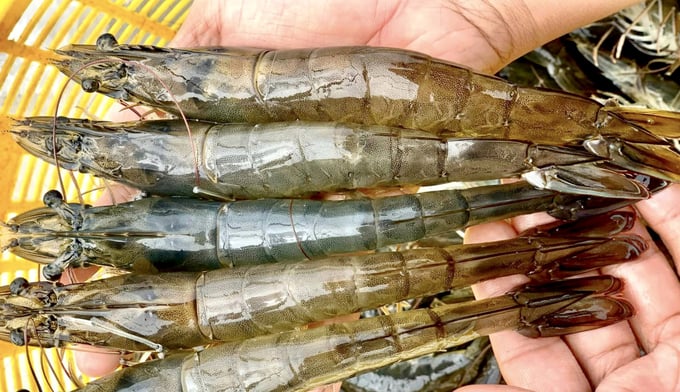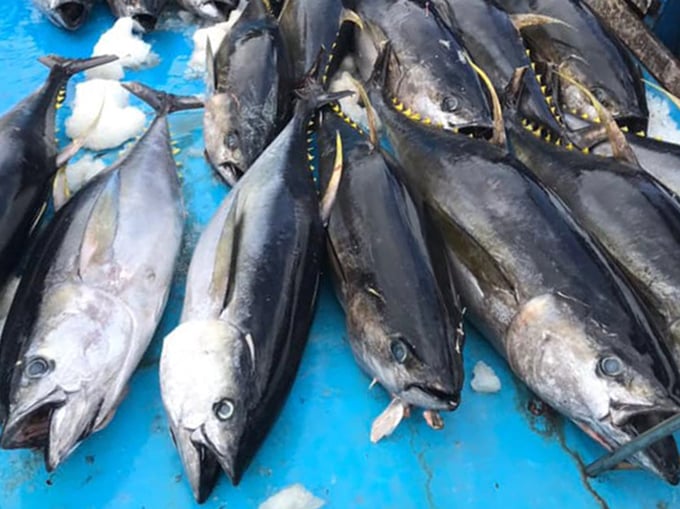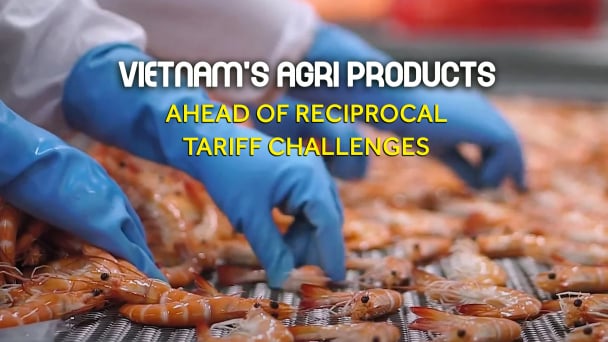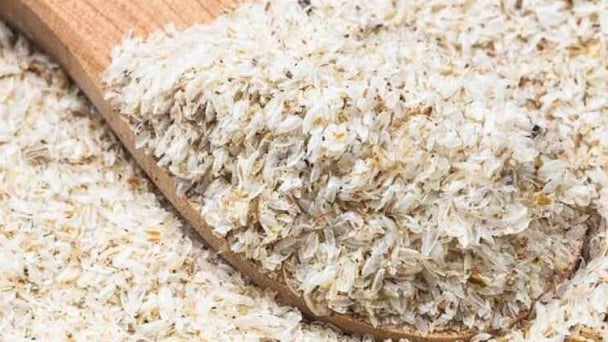May 29, 2025 | 20:29 GMT +7
May 29, 2025 | 20:29 GMT +7
Hotline: 0913.378.918
May 29, 2025 | 20:29 GMT +7
Hotline: 0913.378.918

Vietnamese shrimp holds great potential in the UAE market thanks to the CEPA. Photo: Son Trang.
Shrimp and tuna are two of Vietnam's main seafood export products. These items have been exported to the UAE market for many years. These seafood items have gained strong traction in the UAE market due to their high quality and competitive pricing. Vietnamese shrimp, known for its fresh taste and high nutritional value, while Vietnamese tuna is favored for its versatility in various dishes, from traditional Arabic meals to international seafood platters.
According to the Vietnam Association of Seafood Exporters and Producers (VASEP), the UAE is currently among the top 20 markets for Vietnamese shrimp, with an annual export turnover of around USD 20 million. Between 2018 and 2022, the UAE ranked 16th among Vietnamese shrimp export markets, accounting for about 0.5% of the total shrimp export turnover.
After a decline in 2023, shrimp exports to the UAE have seen a strong rebound this year. In the first nine months of this year, shrimp exports to this market reached USD 7.4 million, a 34% increase compared to the same period in 2023, accounting for 0.3% of the total shrimp export turnover.
Ms. Kim Thu, a shrimp market expert at VASEP, noted that the main shrimp products exported to the UAE include frozen black tiger shrimp, steamed frozen PD whiteleg shrimp, fresh frozen EZP shrimp, whole frozen black tiger shrimp, steamed frozen whiteleg shrimp, fresh frozen PD shrimp, breaded frozen whiteleg shrimp, fresh frozen whiteleg shrimp, and fresh frozen Nobashi whiteleg shrimp.
In the UAE market, Vietnamese shrimp faces competition from two strong rivals: India and Ecuador. India currently occupies 60-70% of the UAE's imported shrimp market share due to its effective tax advantages, while Ecuador, a newer player in the UAE market, has captured 15% of the market share.
Compared to these two suppliers, Vietnamese shrimp faces disadvantages both globally and in the UAE due to higher production costs. The two most important factors for competition in the UAE shrimp market are price and quality. Vietnamese shrimp is of high quality, but due to price disadvantages, it currently holds only a 5-7% market share.
While export turnover to the UAE remains modest, this market is still considered a potential market for Vietnamese shrimp. The UAE serves as a crucial gateway, facilitating access of Vietnamese seafood in general and shrimps in particular to and expansion into Middle Eastern, African, and European markets. With the newly signed CEPA, Vietnamese shrimp will receive the highest, earliest tax incentives, which could help increase its market share in the UAE.

Vietnam is currently one of the top three suppliers of tuna to the UAE. Photo: Son Trang.
Not only shrimp, but another Vietnamese seafood product, tuna, will also see increased export opportunities in the UAE market thanks to the CEPA. According to VASEP, tuna exports to the UAE have continuously grown since 2021. In 2023, tuna exports to the UAE reached nearly 4 million USD, a 139% increase compared to 2019.
Vietnam is currently one of the top three suppliers of tuna to the UAE. Vietnamese tuna imported into the UAE mainly includes frozen tuna meat/loin products, as well as canned tuna.
Currently, imported tuna in the UAE is subject to a 5% tax. With the CEPA, as import taxes on Vietnamese seafood are reduced to 0%, Vietnamese tuna will gain a significant competitive advantage over other suppliers in the market. This presents an opportunity for Vietnamese tuna to expand its market in the UAE in the coming time.
Despite the advantages from the CEPA, VASEP states that for Vietnamese shrimp or tuna to be exported to the UAE more smoothly, businesses need to establish Halal certification systems for shrimp and tuna products destined for this market.
Seafood consumption in the UAE is on the rise due to population growth, increased income, and a growing consumer preference, especially among the younger generation, for seafood protein. Currently, per capita seafood consumption in the UAE is higher than the global average. Additionally, agriculture accounts for less than 1% of the UAE’s economy, meaning that 90% of the country’s seafood consumption is imported. With the UAE’s economy being very stable, these are significant factors for Vietnam to boost exports of shrimp, tuna, and other seafood to the UAE once the CEPA officially takes effect.
Translated by Kieu Chi

(VAN) Vietnamese shrimp exporters are actively looking for alternative markets and accelerating shipments to the United States in response to the pressure of impending reciprocal tariffs. This is occurring during a temporary tariff suspension.

(VAN) The import-export turnover between Vietnam and Singapore rose amid a trade rebound, with machinery, electrical equipment, and fuels making up the majority of the transaction value.

(VAN) Director General of the General Administration of Customs of China, Ms. Sun Mai Jun, has pledged to implement measures that will ease the import process for Vietnamese agricultural products.

(VAN) Although Vietnam is still increasing its coffee exports, the industry is currently in the process of determining market strategies in response to the U.S. imposition of reciprocal tariffs.

(VAN) With rising demand in Muslim-majority countries, Halal certification is becoming a critical passport for Vietnamese agricultural products seeking sustainable market access and consumer trust in the Middle East and Africa.

(VAN) Vietnam’s fruit and vegetable exports to the U.S. are rising sharply, and exporters are hoping that any upcoming reciprocal tariffs will be set at manageable levels.

(VAN) Despite meeting quality standards, Vietnamese rice bran exporters still face difficulties with administrative procedures under the new protocol.